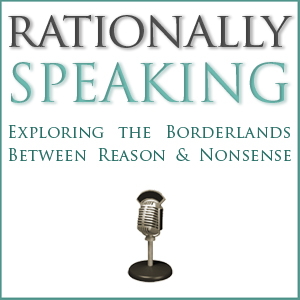Rationally Speaking #150 - Elizabeth Loftus on "The malleability of human memory"
Rationally Speaking Podcast
New York City Skeptics
4.6 • 787 Ratings
🗓️ 10 January 2016
⏱️ 48 minutes
🧾️ Download transcript
Summary
Transcript
Click on a timestamp to play from that location
| 0:00.0 | Rationally Speaking is a presentation of New York City skeptics dedicated to promoting critical thinking, skeptical inquiry, and science education. |
| 0:22.5 | For more information, please visit us at NYCCEceptics.org. |
| 0:31.0 | Welcome to Rationally Speaking, the podcast where we explore the borderlands between reason and nonsense. |
| 0:41.0 | I'm your host, Julia Galeith, and with me is today's guest, Professor Elizabeth Loftus. |
| 0:46.2 | Elizabeth is a cognitive scientist specializing in the fallibility and malleability of human memory, |
| 0:53.7 | especially with respect to recovered memories. |
| 0:57.7 | And her work has landed her on the list of the top 100 psychologists of the 20th century. |
| 1:04.0 | She was the highest ranking woman on that list. It's also won her numerous awards and changed |
| 1:09.0 | the way the legal system handles eyewitness and recovered |
| 1:12.5 | memory testimony. She's been an expert witness or consultant in hundreds of cases. Elizabeth, |
| 1:17.9 | welcome to the show. Thank you. My pleasure. So to start off, maybe you could give us the historical |
| 1:23.4 | context for your work. What was the state of knowledge of how memory worked before your |
| 1:31.7 | body of work hit the scene? And what was the major change in the way psychologists thought about |
| 1:36.7 | memory? Well, I would have to take you back to, I guess, the 1970s when I first, I was out of graduate school and I was trying to think |
| 1:52.3 | about what kind of research that I wanted to do next because I really wanted to do some research |
| 1:58.9 | that had more immediate, practical relevance than the kind of work |
| 2:03.6 | that I had been doing in graduate school and in the first few years postgraduate school. |
| 2:10.6 | And I had done a little bit of studying of memory, but very theoretical work in memory, the kind of work that you could talk to maybe five other people about who would care. |
| 2:22.3 | Right. |
| 2:23.3 | Anyhow, I had always been interested in legal matters, and I decided that maybe I could combine my expertise as an experimental psychologist and having some |
| 2:37.1 | expertise in memory with my interest in legal issues. And I started studying the memory of witnesses |
| 2:44.4 | to, first to accidents because I got funding from the Department of Transportation and later to memory |
... |
Please login to see the full transcript.
Disclaimer: The podcast and artwork embedded on this page are from New York City Skeptics, and are the property of its owner and not affiliated with or endorsed by Tapesearch.
Generated transcripts are the property of New York City Skeptics and are distributed freely under the Fair Use doctrine. Transcripts generated by Tapesearch are not guaranteed to be accurate.
Copyright © Tapesearch 2025.

